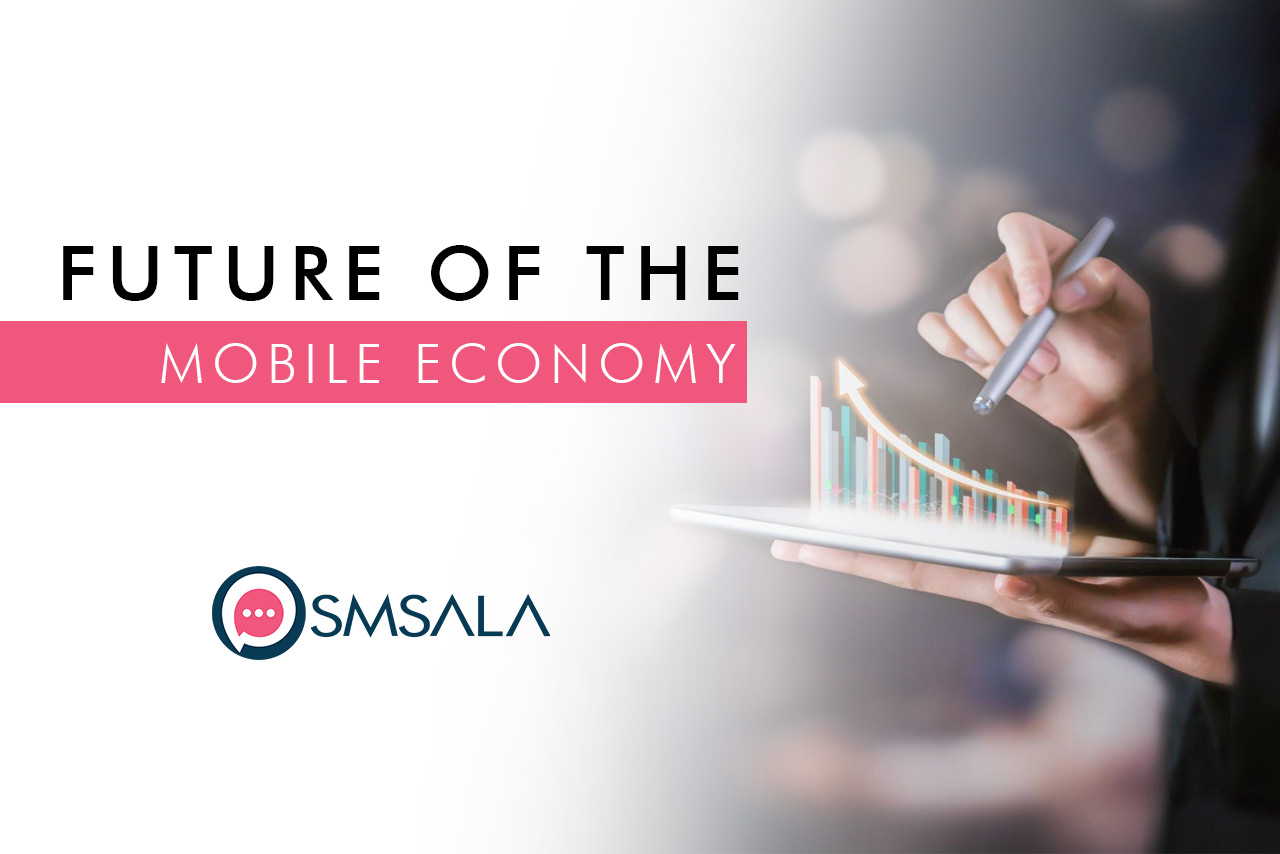With the ever-growing use of the internet in the last decade or so, the number of mobile users has grown manifold. Currently, the number of smartphone users around the globe is close to 7 billion. According to Statista, 83.32% of the world’s population owns smartphones. Among the countries with the highest number of users are China, India, and the United States of America. These statistics highlight the significant penetration of smartphones globally, indicating a shift towards a mobile-centric world.
The Rise of the Mobile Economy
The increasing reliance on smartphones has made people shift their access to the internet from desktops to mobile phones. Now, people more often than not access the internet via easy-to-use smartphones wherever they go. With the proliferation of these phones and internet penetration, people in China spend 72% of their time on mobile devices compared to 27.4% on desktops. This statistic is indicative of a broader global trend where mobile devices are becoming the primary means of internet access.
This shift in consumer preference needs to be acknowledged by businesses of all sizes if they want to flourish in the coming times. Not only shopping online, placing an order, or booking a room in a five-star hotel, people are doing most of their activities using mobile phones for ease and convenience. This in turn compels other players in the respective industries to shift and embrace the mobile economy, which is expected to grow manifold in the coming times.
Changing Employee Preferences
Knowing the power and utility of mobile phones, companies are allowing their workforce to shift from desktops and get the work done in ways that are convenient for the staff. According to one survey, employees are not at their desks 50-60 percent of the time. More and more employees are completing tasks while away from their desks. Another study on the mobile economy concludes that nearly 70% of employees are using the same phone for personal and official use. This trend highlights the blurring lines between personal and professional use of mobile devices, emphasizing the need for businesses to adapt to this shift.
As per 72% of executives, the need for mobile employees will increase in the next few years. This is also because more and more companies nowadays prefer freelancers over permanent employees. The Return on Investment (ROI) is a significant factor driving this shift in preference. Mobile technology enables flexible working arrangements, allowing businesses to tap into a global talent pool and optimize operational costs.
Impact on Businesses and Marketing
The shift towards the mobile economy is not only affecting consumer behavior but also transforming business strategies and marketing approaches. Companies are increasingly investing in mobile-friendly websites, apps, and advertising to capture the attention of the mobile-savvy audience. Mobile marketing, including SMS marketing, push notifications, and in-app advertising, has become crucial for businesses to stay competitive.
Moreover, mobile payment solutions are on the rise, making transactions faster and more convenient for consumers. The adoption of mobile wallets, contactless payments, and QR code based payments is revolutionizing the way people shop and conduct transactions. This trend is particularly evident in markets like China, where mobile payment platforms like Alipay and WeChat Pay dominate the landscape.
Adaptation and Innovation
Businesses need to continuously innovate and adapt to the changing landscape of the mobile economy. This includes leveraging data analytics to understand consumer behavior, personalizing marketing campaigns, and offering seamless mobile experiences. Companies that fail to embrace these changes risk falling behind their competitors and losing their market share.
Investing in mobile technology and staying updated with the latest trends is essential for businesses to thrive in the future mobile economy. By prioritizing mobile strategies and focusing on customer experience, companies can build stronger relationships with their audience and drive growth. Here are a few key areas where businesses should focus their efforts:
- Mobile-First Design: Ensure that your website and applications are designed with mobile users in mind. This means responsive design, fast loading times, and intuitive navigation.
- Personalized Marketing: Utilize data analytics to understand user preferences and behaviors. Personalized marketing messages delivered through mobile channels can significantly increase engagement and conversion rates.
- Mobile Payments: Implement mobile payment options to cater to the growing number of users who prefer this method. Secure, fast, and convenient payment options can enhance the customer experience and boost sales.
- App Development: Consider developing mobile applications that offer unique value to your customers. Apps can enhance customer loyalty by providing a platform for personalized interaction, exclusive offers, and seamless shopping experiences.
- Social Media Integration: Leverage the power of social media platforms to connect with your audience. Mobile users spend a significant amount of time on social media, making it a critical channel for engagement and marketing.
The Role of 5G in the Mobile Economy
The advent of 5G technology is set to further accelerate the growth of the mobile economy. With its promise of faster speeds, lower latency, and higher capacity, 5G will enable new applications and services that were previously not possible. From augmented reality (AR) and virtual reality (VR) to the Internet of Things (IoT), 5G will drive innovation across various sectors.
For businesses, this means new opportunities to enhance customer experiences, streamline operations, and develop innovative products and services. For example, retailers can use AR to create immersive shopping experiences, while manufacturers can leverage IoT to optimize production processes. The enhanced connectivity offered by 5G will also facilitate remote work and collaboration, further blurring the lines between physical and digital workspaces.
The Environmental Impact of the Mobile Economy
As the mobile economy grows, it’s essential to consider its environmental impact. The production and disposal of mobile devices contribute to electronic waste (e-waste), which poses significant environmental challenges. Moreover, the energy consumption of mobile networks and data centers has a substantial carbon footprint.
To address these issues, businesses and consumers need to adopt sustainable practices. This includes promoting the recycling and responsible disposal of electronic devices, investing in energy-efficient technologies, and supporting initiatives that reduce the environmental impact of the mobile economy.
The Future of Mobile Commerce
Mobile commerce (m-commerce) is a significant component of the mobile economy. The convenience of shopping on mobile devices has led to a surge in m-commerce, with consumers increasingly making purchases through their smartphones and tablets. According to eMarketer, mobile commerce sales are expected to account for 73% of total e-commerce sales by 2021.
For businesses, this means optimizing their online stores for mobile devices and providing a seamless shopping experience. Key strategies include:
- Responsive Design: Ensure that your e-commerce site is mobile-friendly and adapts to different screen sizes.
- Simplified Checkout: Streamline the checkout process to reduce friction and cart abandonment. Offer multiple payment options, including mobile wallets and one-click payments.
- Enhanced Security: Implement robust security measures to protect customer data and build trust. This includes SSL certificates, secure payment gateways, and regular security audits.
- Customer Support: Provide responsive customer support through mobile channels, such as live chat and social media, to assist shoppers in real-time.
- Personalization: Use data analytics to deliver personalized shopping experiences, such as product recommendations and tailored promotions.
Conclusion
There is no doubt that in the coming years, the shift to the mobile economy will be complete. For businesses that do not accept the change and stick to outdated ways of connecting with customers, the future appears bleak. Embracing the mobile economy is not just an option but a necessity for survival and growth in the modern world.
To remain relevant, businesses must adapt to the mobile-first approach, invest in mobile technology, and continuously innovate to meet the evolving needs of consumers. The future of the mobile economy is bright, and those who embrace it will be well-positioned to succeed in the digital age.
The mobile economy is here to stay, and its impact will continue to shape the way we live, work, and interact. By staying ahead of the curve and leveraging the opportunities presented by mobile technology, businesses can drive growth, enhance customer experiences, and secure their place in the future economy.
For more information on how to leverage the mobile economy for your business, visit SMSala and explore our comprehensive range of mobile marketing solutions.



